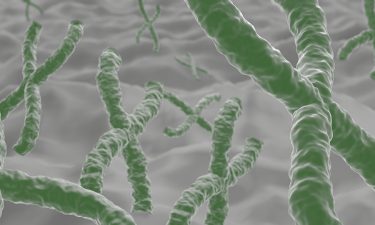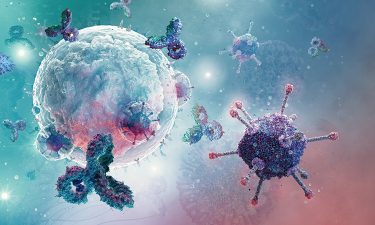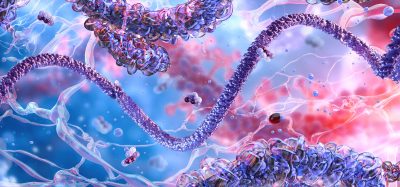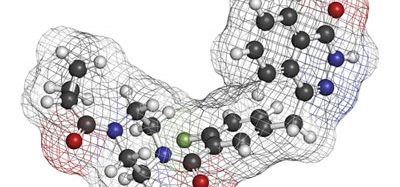Unleashing the power of AI in target discovery and resilience against disease
Posted: 11 July 2023 | Izzy Wood (Drug Target Review) | No comments yet
In this interview Drug Target Review’s Izzy Wood and Olivia Cavlan, Chief Corporate Development and Strategy Officer at Alchemab Therapeutics Ltd, uncover the untapped potential of AI in target discovery. Alchemab’s revolutionary platform aims to identify common antibodies in resilient individuals and uncover the antigens that contribute to their disease-fighting abilities. We delve into the holistic approach, antibody diversity, and the pivotal role of AI in sequencing and opening up new horizons for disease treatment and prevention.


In the quest to combat and eradicate diseases, scientists and researchers are increasingly turning to the immense potential of artificial intelligence (AI) as a tool. By leveraging AI algorithms and advanced computational capabilities, a new frontier is emerging in the identification of new disease targets that may possess remarkable disease-fighting abilities. These innovative approaches offer unprecedented insights into the intricate mechanisms underlying diseases and open up exciting possibilities for more targeted and effective treatments. In this article, I spoke to Olivia Cavlan, Chief Corporate Development and Strategy Officer at Alchemab Therapeutics Ltd, about how AI is transforming the landscape of disease research, unlocking a treasure trove of knowledge that may hold the key to a healthier future.
Cavlan is a medic and a pharmacologist by background. Spending a couple of years practicing on the wards around London, and then moving into management consulting at McKinsey & Company which led her to work in pharmaceutical research and development (R&D). Her focus initially consisted of preclinical development strategies, clinical development optimisation, target discovery and validation.
Cavlan progressed to diligence work around assets and pipelines as well as building out McKinsey’s Real World Evidence practice. It was here, in this emerging, exciting world of data and advanced analytics, where she began leading projects around target discovery using AI with QuantumBlack, a specialist team within McKinsey focused on AI.
The huge potential of AI in target discovery, as well as in other parts of pharmaceutical pipeline, led Cavlan to SV Health Investors. It was here that the Impact Medicine Fund was raised with the ambition of unlocking some of this vast potential. Asking the question “Why are some individuals with disease unusually well, and how can we use AI to unpick that?”, is what led to the creation of Alchemab Therapeutics.
Holistic approach to disease
Cavlan anecdotes a person with cancer: “In some devastating conditions like pancreatic cancer, most individuals will survive for around a year. But there are some unique individuals who survive for 10 years or more despite having exactly the same disease – what’s keeping these people alive?”
We can also ask the same question for neurological conditions. In Alzheimer’s disease, for example, some forms can have a hereditary component. There is a genetic allele called APOE4 that confers an increased risk of Alzheimer’s disease if you have two copies of it. If someone has two copies of this APOE4 allele but does not get Alzheimer’s disease, or gets it much later than we might expect, is there some preventative factor shared uniquely by these unusually well people?


While there could be several reasons for this unusual wellness, Alchemab decided to focus on individual’s immune system as a leading potential cause. In simple terms, our immune system is divided into innate and adaptive responses – the innate being the first line of defence, and the adaptive responds to specific challenges by modifying the body’s immune response in a tailored fashion.
Part of the adaptive immune system, known as the B cell compartment which produces antibodies, led to Cavlan’shypothesising that resilient individuals could have a common B cell response that other people with the disease do not have. Thus, all of these people that are surviving cancer for 10 years may be producing the same antibody, to the same antigen or target, that is somehow fending off disease.
This led to the creation of Alchemab’s platform which enables researchers to discover these unique antibodies, and then uncover what their antigen, or disease modifying target is. In this way, the platform inverts the traditional target-led discovery process, and allows the immune system to guide us to the most importantdisease modifying target.
Identifying antibodies using this ‘convergence’ concept, expressing them and then running them against really large screens of antigens in an unbiased way to understand what they bind to, anda particularly new approach end to end. The approach combines the most advanced computational capabilities around B cell mining together with classical lab-based therapeutics discovery capabilities.
Antibody diversity
The theoretical diversity of antibodies is approximately 10 to the power of 13, more than there are stars that you can see in the sky. Comparing one individual’s antibody repertoire with another, it is unlikely that you will see an overlap, in fact it is highly rare.
There are many complexities within sequencing that AI help aid.
Unless two people have had a COVID vaccination in the same week, it is extremely improbable that they would have the same antibody circling. Thus, when it is discovered that the same antibodies circling in these resilient individuals, that are not present in the group of individuals with a normal disease trajectory and are not present in healthy controls, it means that the body must selecting for it.
“In terms of numbers,” Cavlan explained, “we now have more than 3,500 highly curated samples and more than 350 million unique B cell sequences from patients. Alchemab use ‘The Data Cube’, a proprietary platform powered by AI to store and computationally analyse the data. The team essentially mines these 350 million B cell sequences to identify the 100 or so per cohort that we think could have a role in disease. It will be these 100 or so antibodies that will be expressed and then tested by way of another filtering process, to see which targets are identified from our high throughput, unbiased antigen screens.”
The process is complex and requires huge amounts of data – including all the patient metadata and the sequences themselves, the in vitro and in vivo data, and our annotations. In total there are approximately four billion data points and growing that need mining.”
“Given this multitude of data, AI can play a very important part here, alongside identifying these common antibodies, there are many complexities within sequencing that AI help aid.
AI’s role in sequencing
Bulk BCR RNA sequencing looks at specific B cells circulating in a blood sample that are producing these common antibodies. Another approach to mine these antibodies could be to do single-cell sequencing. A challenge with today’s single-cell sequencing capabilities is that you cannot sequence all the B cells in the sample. Typically only up to 100,000 of them can be sampled which means you are sampling only a fraction of someone’s circulating antibody repertoire.


B-cell white blood cell, type of lymphocyte produce antibody molecules. B cell is humoral immunity component of the immune system producing antibodies, protect against pathogens: bacteria, viruses.
“We want to be sequencing up to a million or more B cells per sample which is possible using the bulk sequencing approach,” Cavlan explained. “The challenge that we have using bulk BCR RNA,” she continued, “is that an antibody is made up of four components. There are two heavy chains and two light chains, and it is typically the heavy chain that confers the majority of the binding. Bulk sequencing screens the heavy chains only and so unlike single cell sequencing, which benefits from identifying both the heavy and light chains, with bulk sequencing we need to generate a functional light chain.” To address this problem, Alchemab’s team have developed a range of approaches to pair functional light chains to these worker heavy chains and AI has played a role in this. “Our tech team have built a proprietary technology to generate and pair antibody light chains with heavy chains using some of the latest computational language model techniques.”
Sequencing these antibodies lets researchers examine them at an amino acid level, looking for things such as convergence, or common amino acid sequences in different antibodies. Using advanced AI capabilities it is now possible to turn these sequences into structures, providing an additional layer of insight. For example, researchers may then ask: Do we see convergence on a structural level as well, despite having different amino acid sequences?
To answer this, the researchers again apply the latest computational techniques to improve the platform, making the filter more efficient at selecting the most important antibodies that could be driving that resiliency signal.
This approach can be applied across diseases, because adding AI to the process means that it is relatively easy to compare and contrast the vast amounts of data. For example, different antibody repertoire signatures are seen in infectious diseases versus cancers and cancers themselves can be distinguished from each other. This level of insight highlights the tantalising potential of diagnostics based on immune repertoires.
There is still a lot of work to do to deliver the next generation of therapies and diagnostics, but the applications of AI in target discovery are endless. Cavlan will explore more of these ends in our next article.
Author bio:


Olivia is Alchemab’s Chief Corporate Development and Strategy Officer where she oversees global business development and partnerships and leads corporate strategy.
Prior to Alchemab Olivia was an Investment Principal at SV Health Investors and a Partner with McKinsey & Company where she was part of the leadership team in the Healthcare Private Equity and Pharmaceutical practices. While at McKinsey, Olivia co-led the global Real World Evidence practice and QuantumBlack biopharmaceutical offering where she led work on target discovery and clinical development. She has also led several global biopharma R&D transformation efforts and developed clinical and commercial strategies for a number of preclinical assets.
Olivia is a Non-Executive Director for the UK BioIndustry Association and a member of the Investment Committee for Cancer Research UK’s (CRUK) Seed fund. She also co-founded and sits on the Board of Directors of Sevenless Therapeutics, a small molecule pain company.
Olivia holds an MBChB in Medicine and a BSc in Pharmacology from Bristol University where she graduated with the top First Class Honors.
Related topics
Antibiotics, Artificial Intelligence, Bioinformatics, Disease Research, Drug Discovery Processes, Target Validation, Targets
Related people
Olivia Cavlan (Alchemab)








